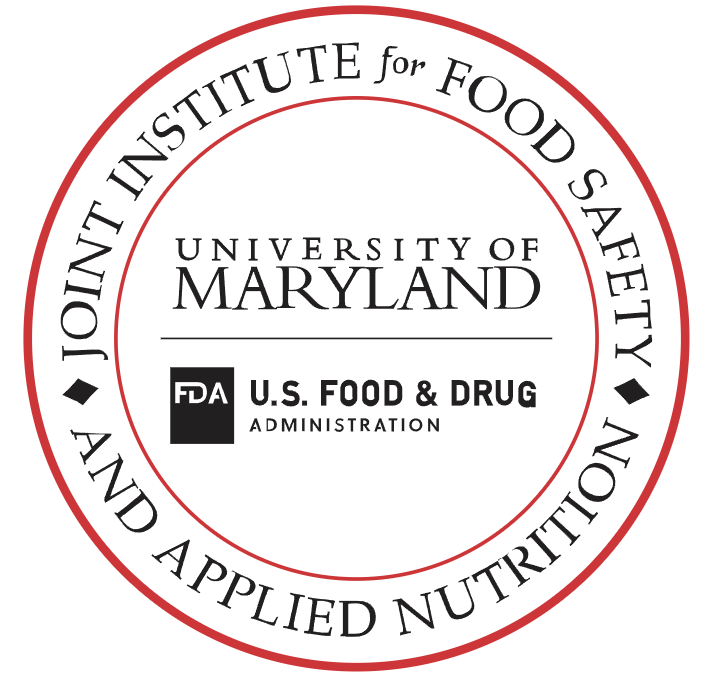
Joint Institute for Food Safety and Applied Nutrition (JIFSAN)
Center for Food Safety and Security Systems (CFS3)
2025 Integrated Food Safety Risk Analysis CORE Courses Empowering Professionals in Food Safety Risk Analysis!
IN-PERSON COURSES:
Ensuring food safety requires a comprehensive approach that integrates scientific evaluation, strategic decision-making, and clear communication. This three-course series covers key aspects of food safety risk analysis, guiding participants through how risks are identified, evaluated, managed and communicated. Courses can be taken individually; however, each course builds on the next, offering a complete skill set for policymakers, scientists, and industry professionals to make informed decisions and protect public health. Enroll in all three to gain the expertise needed to navigate food safety risk analysis with confidence!
WHO SHOULD PARTICIPATE?
Our training courses are targeted at a broad cross section for professionals in government, academia, industry, and advocacy. This program gives you the skills to lead in food safety risk analysis at any level.
Risk Management Essentials (A Course for ALL Professionals)
October 2-3, 2025 (2 days)
Price: $1,000
Effective food safety starts with strong risk management—where decision-makers and analysts work together to identify challenges and implement solutions. This interactive two-day course equips professionals to navigate regulations, weigh policy options, and manage uncertainty with confidence. Risk management isn’t just for risk managers—it’s essential for scientists, communicators, policymakers, and anyone involved in decision-making.
Through hands-on activities and real-world scenarios, participants will develop risk profiles, set priorities, and explore practical management strategies. By the end of the course, you’ll have the tools to assess risks, balance priorities, and communicate decisions clearly. Turn analysis into action—and strengthen food safety in your field.
Qualitative Risk Assessment
October 6-7, 2025 (2 days)
Price: $1,000
Risk assessors play a crucial role in food safety risk analysis by providing a systematic approach to incorporating the current scientific understanding of a food safety risk and analysis of possible ways to manage that risk in accordance with a country’s regulatory process. Their primary focus is on evaluating potential hazards, assessing their likelihood and severity, and generating information that informs risk management decisions. This course teaches the skills needed to predict the likelihood of harm resulting from exposure to chemical, microbial, and physical agents in the diet and respond to risk managers' questions concerning these areas.
This course is essential for professionals seeking to enhance their ability to protect public health through rigorous, evidence-based risk evaluation.
Risk Communication
October 8-10, 2025 (3 days)
Price: $1,500
Effective risk communication is essential for safeguarding public health and maintaining trust in food safety systems. This course explores the principles and global practices of risk communication, focusing on its role in food safety risk analysis. Participants will learn how to convey scientific findings and policy decisions clearly, engage with diverse stakeholders, and address public risk perceptions. By mastering strategies for interactive dialogue and transparent messaging, students will be equipped to navigate complex risk scenarios and foster public confidence in food safety measures.
WHY TAKE ALL THREE?
The courses build on each other to offer a holistic view of food safety risk analysis. Whether you are a policymaker, scientist, or industry professional, mastering these three areas will enable you to play a key role in protecting public health through informed decision-making and transparent communication.
LOCATION:
5825 University Research Court, Suite 1400
College Park, MD 20740
REGISTER for all 3 courses (CORE program) BY July 1, 2025 and receive a 15% Early Bird Discount - $525 savings!!
ADD-ON ONLINE COURSE:
Intro to FDA-iRISK® and Quantitative Risk Assessment
November 3-7 (5 days)
Price: $2,500
This course provides participants with the basics of building and understanding quantitative risk assessment models. They will be introduced to @Risk - a Microsoft Excel-based Monte Carlo simulation program, and FDA-iRISK® - a Web-based, comparative risk assessment tool with many built-in functions and automated features allowing users to rapidly conduct fully probabilistic risk assessments.
This course will give participants a strong foundation in stochastic processes, probabilistic risk assessment and Monte Carlo simulation. Participants can expect to gain hands-on experience in building and analyzing computer-based probabilistic models and experience some techniques and challenges to expect in presenting their results.
Participants should have basic knowledge of probability and statistics and intermediate-level skills in using Microsoft Excel.
REGISTER
for Intro to FDA-iRISK® and Quantitative Risk Assessment by August 4, 2025
for a 15% Early Bird Discount - $375 savings!

